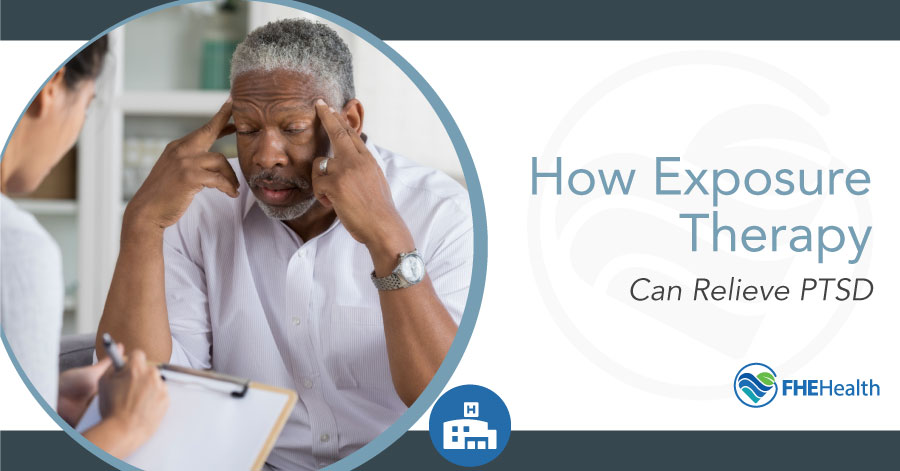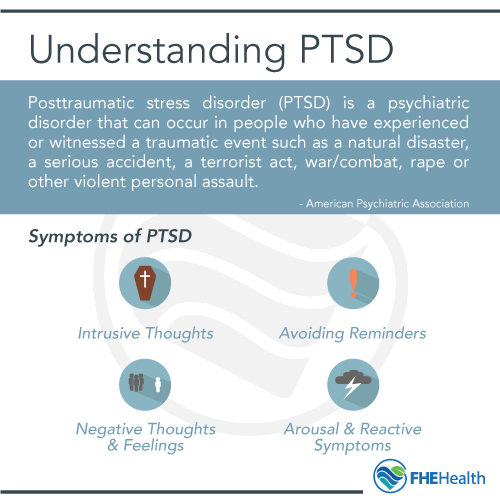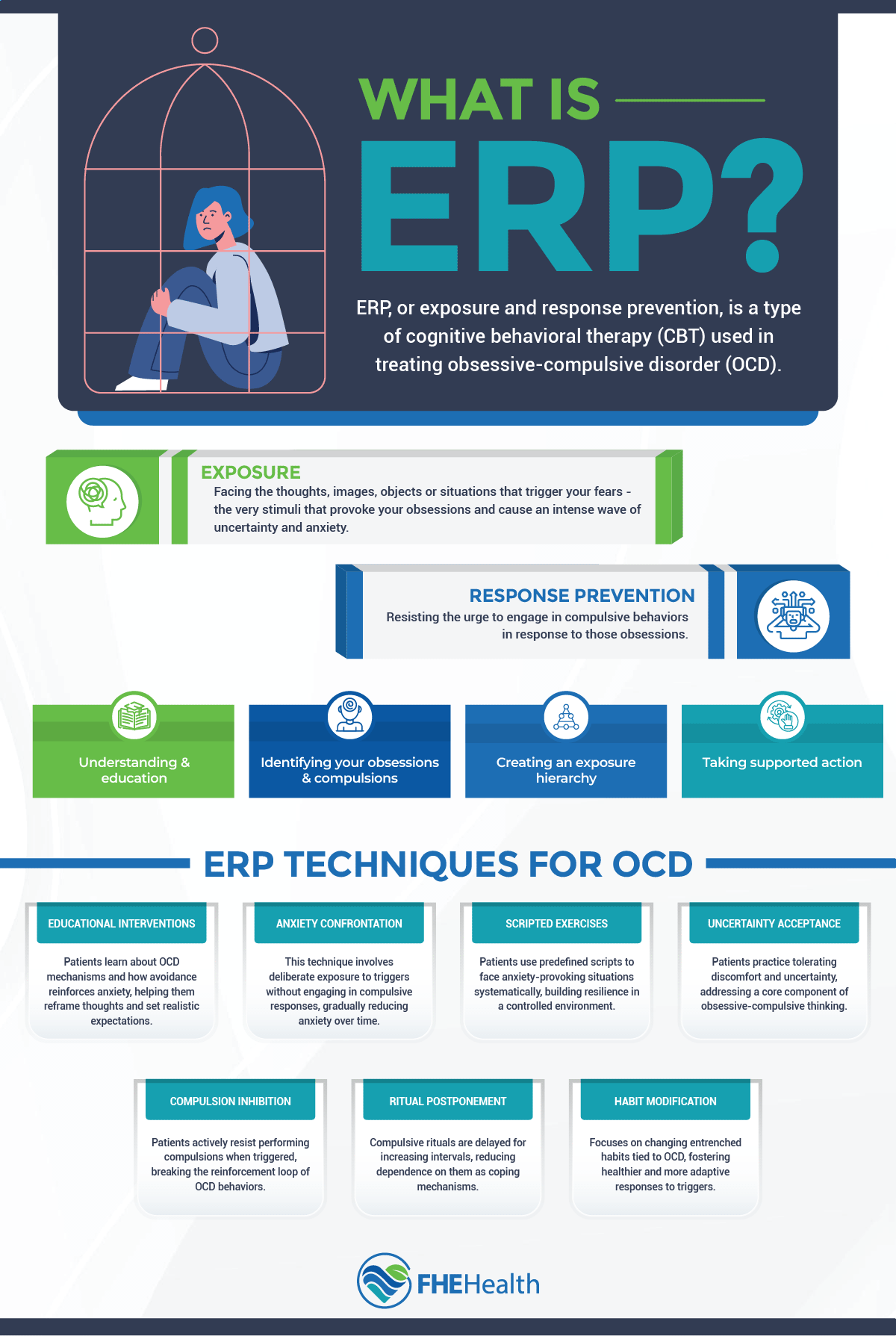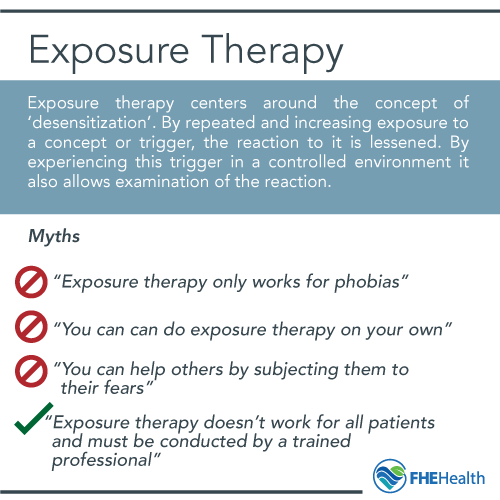
When we hear the words “exposure therapy,” some extreme images might come to mind. We might think of people being forced to watch unsettling imagery or sit in a room with something they fear. The reality of exposure therapy treatment for PTSD is quite different and, as a result, significantly less intimidating.
How can exposure to something that triggers a negative emotional response be leveraged to help a patient get over that response in a safe, healthy way? As it turns out, exposure therapy can effectively treat PTSD, as well as phobias, OCD and other conditions. Here is an overview of what PTSD is and how exposure therapy is carried out as a treatment for it in a rehab setting.
What Is PTSD?
 Post-traumatic stress disorder, or PTSD, is a psychiatric condition that occurs in people who have experienced or witnessed traumatic events. According to the American Psychiatric Association (APA), the condition has existed for a long time, with records of combat veterans coming from deployment with “shell shock” or “combat fatigue.”
Post-traumatic stress disorder, or PTSD, is a psychiatric condition that occurs in people who have experienced or witnessed traumatic events. According to the American Psychiatric Association (APA), the condition has existed for a long time, with records of combat veterans coming from deployment with “shell shock” or “combat fatigue.”
This history has made PTSD closely associated with wartime experiences. However, PTSD can come from anything that is perceived as especially traumatic or emotionally damaging to a person. This includes witnessing or being the victim of an assault or other crime, an especially violent event, a natural disaster or another very serious event.
How Does PTSD Manifest in Those Who Suffer From It?
Traumatic experiences have the tendency to have after-effects that may resemble PTSD immediately after they occur. To be PTSD, however, the following symptoms need to be present months or years after the event in question:
Involuntary Thoughts and Memories
People with PTSD often have intrusive thoughts, including distressing dreams and unprompted flashbacks to their trauma.
Low Self-Esteem
Often, people with PTSD internalize their condition and the connection with the trauma that brought it on. They may feel that they’re somehow inferior to others because of their condition or at fault for the initial event.
Angry Feelings and Outbursts
Those affected by past trauma often have emotional control and temper issues. This may lead to severe outbursts and an inability to communicate with others.
Avoidance of “Triggers”
Because they know that certain exposure will trigger the negative effects of their condition, people with PTSD often become reclusive and go out of their way to avoid environments where these triggers may arise.
What Is the Need for PTSD Treatment?
For people with PTSD, life can be much harder than for those without. Its symptoms can make it difficult to maintain healthy relationships, find and hold a job, and simply live a high quality of life. There are also many other conditions that can be brought on in conjunction:
For example, the number of military veterans who are homeless is continuing to rise, and according to one study, two-thirds suffer from PTSD.

Conditions That Commonly Accompany PTSD
Other common conditions that accompany/correlate with PTSD include:
- Depression, anxiety and suicidal thoughts
- Acute and chronic stress
- Alcoholism and addiction
PTSD is one of the most common co-occurring disorders with addiction, making it uniquely difficult to treat effectively.
 Exposure therapy is an intense form of treatment therapy for people with phobias and anxiety related to certain situations. For example, exposure therapy for agoraphobia (fear of crowds and public spaces) and social anxiety would involve gradually exposing someone to these situations in a controlled environment.
Exposure therapy is an intense form of treatment therapy for people with phobias and anxiety related to certain situations. For example, exposure therapy for agoraphobia (fear of crowds and public spaces) and social anxiety would involve gradually exposing someone to these situations in a controlled environment.





